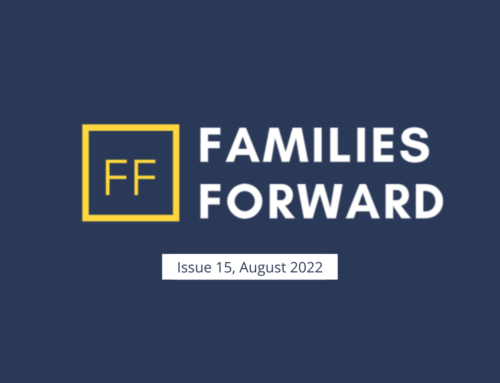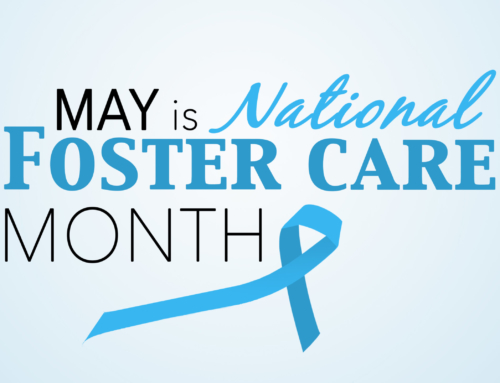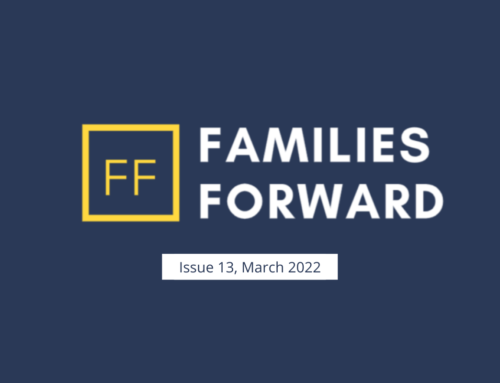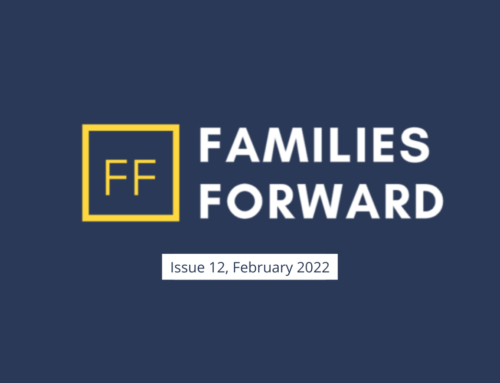Written by Amanda Kemp
Imagine you are 10 years old. You rely on your parents for a lot of things- packing your lunch, making sure you get to school or to the bus stop on time, taking you shopping for clothes, planning your birthday party, tossing around a softball to get you prepared for joining the team this year, and taking you on family outings. These are just a few of the thousands of things that parents might do for their children. Now imagine you are 14 years old. You want to be independent, but you need someone to guide you. Your parents register you for driver’s education classes; take you to your first Homecoming dance; make sure that your transition from middle school to high school is as seamless as possible by ensuring you are registered for your classes and have all of the school supplies and information that you need to start this new chapter in your life; and teaching you basic life skills like grocery shopping, cooking meals, and doing laundry. At age 16, you think you have a pretty good grasp on adulthood so you push back when your parents offer to help. You quickly learn that you don’t know it all and reluctantly accept their help. Your parents gave you advice on how to dress and how to respond during job interviews. After you get your first job, your parents encourage you to save your hard earned money so that you can buy a car. They go with you to purchase your first car, and help you find the most affordable insurance rates. At age 18, you still think that you are completely ready for adulthood and don’t really need anything from your parents. You go off to college and need your parents to help you move into the dorm. It’s a shock to you that working part time at a fast food restaurant while going to school full time does not quite cover the cost of living, so your parents are more than happy to send you money for groceries and maybe help with your car insurance payments if you are a little short that month. Each summer, you are able to come home and stay with your parents until the next semester begins. You come home on holidays to see your family. And you call your parents if you need advice or even just to say how much you miss them.
As an adult, there are plenty of other instances where you might rely on your parents- family recipes, taking care of your kids for a day to give you time for yourself, or even popping over to check on you if you aren’t feeling well. There are countless reasons why a person is never too old for family. For all of these reasons and many more, it is imperative that parents consider adopting teenagers and giving them a forever family. Adoption does not last until a person turns 18- adoption is forever.
Elizabeth experienced firsthand what it is like to be in foster care as not only a teenager, but also a single mother. This is what Elizabeth would like you to know about her:
“My name is Elizabeth and I would like to tell you a little bit about my life in foster care and being a single mother.
I have been in foster care for a little over two years now. Growing up, both my parents were on drugs. My dad passed away when I was eight years old and my mom went into rehab. When my mom got out of rehab, I thought everything was going to be OK but it wasn’t. My mom got back on drugs and there was never enough money for food or clothing for me and my brother. Shortly after, I started staying with my grandma. I always hoped my mother would get clean but she never did.
After a couple months of living with my grandma, I got pregnant and then I entered foster care. My first placement was at a woman’s shelter but they did not allow babies. I was only three weeks away from my due date and I was placed at a group home for moms and babies. It was alright there but once I had my son, I started to act out because I wanted to be placed with my grandma. I wasn’t going to school, I wasn’t following the rules, and I was very disrespectful to the staff there. After six months of being there, I was placed back with my grandma and I’m doing so much better now. I was on the honor roll last year and now I’m a Junior <in> High School and I plan on going to Michigan State University to be a lawyer.
Being a single mom and going to school is hard but I have my grandma to push me to do better. Being in foster care isn’t the easiest thing but I’m so grateful I have my grandma to be there for me and my son.
After all, life is what you make of it.”
Elizabeth, and all other teens in care, truly deserve to have a permanent family who will push them to do their best in life and thankfully Elizabeth’s grandmother is dedicated to being there for her permanently.
Another youth, AJ, makes a very valid point about what teenagers face if they are not adopted. She would like to share her story with you as well.
“Hi I’m Aj a 17 year old girl who (like most foster kids) spent most of my childhood in the “system”. I entered the system at the age of 5 and since then I have been in a total of 30 homes (this includes residential). I have been through things no human should go through. I have seen things no children should ever see. I feel as though I have been robbed of my childhood. At a very young age, I had to learn to take care of myself and others. I have learned many important lesson such as, life is not easy. I learned that at the age of ten when I was told I was told that I was “too old to adopt “. I started to believe in all types of lies that I was told about me not being wanted. When I was thirteen I was prepared to realize that I was just going to have to age out of the foster care system.
The “first” stage <of foster care> is the entering stage. Then entering stage is followed by the aging out stage which is led to many things such as generations after generation being put into the “system” because no one had the parenting to know how to parent. This is not a life style that people should accept. This cycle has to be broken.
I am a 17 year old girl who plans on rescuing kids out of this way of life. I am finally getting the family I belong with and I have a awesome new little sister and a dog. I know I’m wanted and loved. And that’s what all children want in the end.”
“Aging out” of foster care is unfortunately a very realistic outcome for most teens in care. They are prepped for the “real world” by their caregivers and residential workers. They are taught how to live on their own, but do not always have the support that they need to succeed. They are provided with a set amount of stipends and certain amenities that they have to qualify for. According to Kids Alliance, 75% of young women in foster care report at least one pregnancy by age 21. And just as AJ said, their children often end up in foster care because they did not have the parenting knowledge that they needed to properly care for their own children. A popular saying is to lead by example. If there is no one to set the example for our youth, how will they succeed when they reach adulthood and parenthood? According to the US Administration for Children and Families, nearly 18,000 foster children did not achieve permanency resulting in them aging out of foster care in 2018. Additionally over 17,000 more had emancipation as their goal. Studies show that children who age out of foster care are more likely to become homeless, less likely to graduate high school, unable to obtain employment, more likely to become incarcerated, and are more prone to become victims of sex trafficking.
Adopting a teenager does not mean that you have missed out on their childhood. Rather, it means that you are their support, their mentor, and their guide through adulthood. You will make new memories together and encourage them to embrace the positive aspects of their past, and learn from the negatives. You are there to help them in the hardest and most complicated parts of their lives- becoming an adult. Every child deserves to have a parent or parents who will be there for them, and give them love and guidance throughout their lives, not just until they become adults. A person is never too old for family. Many teens in care understandably have trust issues and they often feel misunderstood. They likely have not had consistency or stability in many aspects of their lives. They may try to push back and test their caregivers to see how dedicated their caregivers truly are. Will they be there for the teen regardless of behaviors and love them unconditionally? There are several articles at https://blog.adoptuskids.org/tag/adopting-teens/ from parents who have adopted teens in the past. They share their experience and offer their advice.
On the Michigan Adoption Resource Exchange (MARE) website, www.mare.org, there are currently 200 children ages 13-18 in need of a permanent home, just in the state of Michigan. This number exponentially increases across the country. MARE offers a variety of assistance to adoptive parents with Post Adoption Services, MARE Match Support, links for trainings and other resources. If you choose to adopt, you are certainly not alone. There are tons of resources available to adoptive parents as well as to teens who are in or have been in foster care.
There is a constant, ongoing desperate need for families to adopt teenagers. I encourage you to check out the websites provided, and make an informed decision about providing a child with permanency. All children need and deserve a home, a family, and lasting connections. Regardless of your gender, race, ethnicity, religious beliefs, or sexual orientation, there is a child out there who needs your love and support. Please consider attending adoption orientation for more information about becoming a foster and/or adoptive parent. Call Forever Families at (734)762-0909 or visit our Facebook page for an updated orientation schedule!








